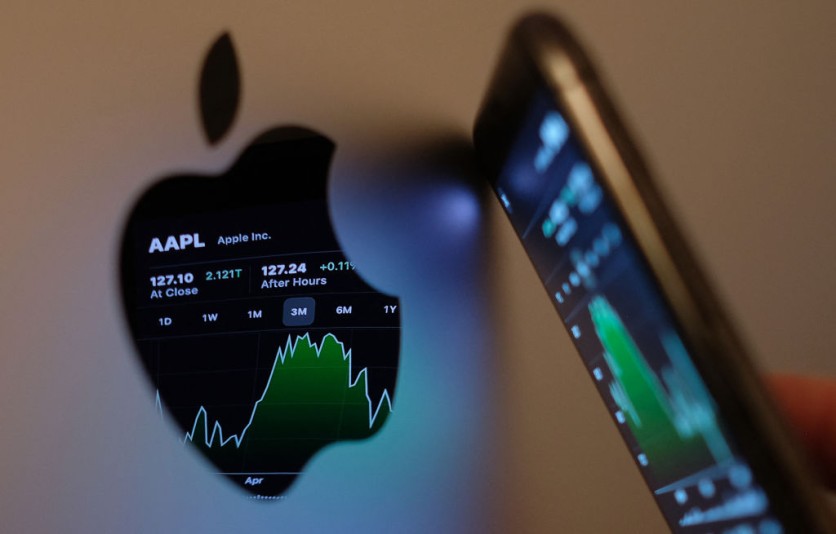Apple's tap-and-go technology for contactless payments could reportedly soon be available to rival mobile payment applications.
A move by the tech giant to hopefully avoid a hefty fine by EU regulators.
Sources indicate Apple hopes that by settling the four-year inquiry, it would avoid being found to have committed any violation and avoid paying a potentially large fine that may equal up to 10% of its yearly global turnover.
NFC, or near-field communication, is Apple's tap-and-go technology that enables contactless payments via mobile wallets.
Two years ago, Apple Pay was accused by the European Commission of stifling competition for its mobile wallet by denying competing mobile wallet software developers access to its tap-and-go technology.

(Photo: CHRIS DELMAS/AFP via Getty Images) Apple is now at the center of a landmark antitrust case in the United States, with its "walled garden" or closed ecosystem under scrutiny for allegedly limiting consumer choice and competition.
Thanks to these improvements, apps can now choose to be the default wallet app that opens when a user double-clicks the side button or holds their phone up to a card reader.
However, The policy's easing is limited to apps accessible within the European Union and not globally.
Apple has thus far rigorously restricted access to the iPhone's NFC contactless chip out of worries for security, privacy, and user experience. Due to the lack of competition, Apple Pay has emerged as the preferred contactless payment method for iPhone users.
Customers will have the option to download substitute applications and designate them as their device's default contactless payment app.
As a result, the app will be able to replace system functions like double-click and near-field activation that are normally connected to Apple Pay.
Read Also: Apple Store Online Third-Party Pick-Up Scam, Exposed by Cybersecurity Professionals
Free Apple NFC Access
The American tech giant made a fair and non-discriminatory offer in January to provide competitors free access to its NFC on iPhones, iPads, and other Apple mobile devices, provided they did not require the usage of Apple Pay or Apple Wallet.
In addition, it promised to offer further features like the ability to set up a dispute resolution process, access to authentication capabilities like FaceID and a suppression mechanism, and the defaulting of preferred payment apps.
In response to criticism from competitors and customers, Apple was requested to modify a few of the agreements. Ten years would be covered under the NFC plan.
Apple's EU Woes
Apple's practices continue to be scrutinized by the European Union; in early March, Apple was fined 1.84 billion euros, or around $2 billion, by the European Commission (EC) of the European Union for allegedly hurting its rivals in the music streaming market.
The European Commission contended that Apple misled consumers into thinking that using its payment service to pay for a Spotify subscription was the only way to make payments when they downloaded streaming music apps like Spotify.
In 2019, Spotify complained to the European Commission (EC) about Apple's unfair competition in the streaming music business, where Apple Music is a competitor.
Although Spotify is available for download on its website and through the Spotify app, Spotify contended that Apple had blocked payments on its platforms to keep a cut of each membership transaction.
Related Article: Apple FineWoven Cases, Watch Bands to Bid Farewell Due to Durability Issues [REPORT]

(Photo: Tech Times)
ⓒ 2025 TECHTIMES.com All rights reserved. Do not reproduce without permission.




